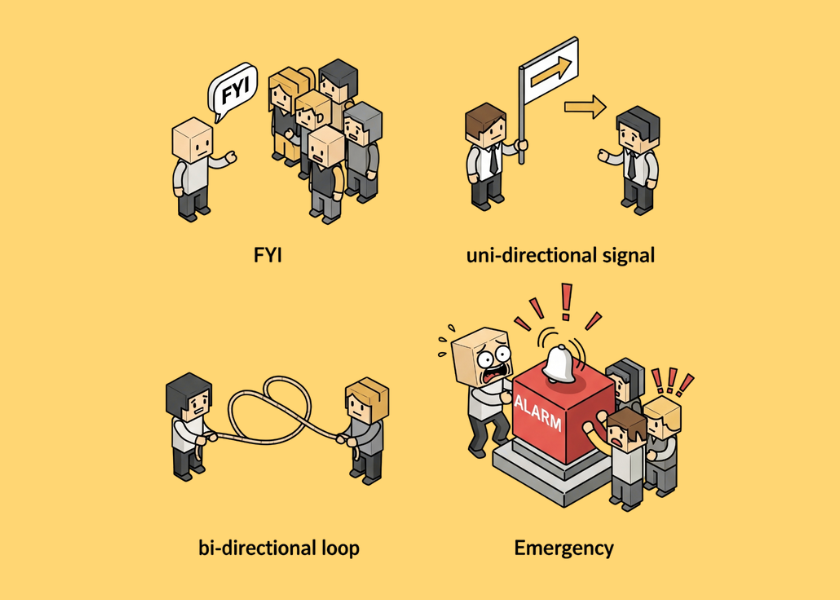Mastering Remote Work - The Async Advantage
Where are the gaps in the async capabilities of your team and how are they compromising your ability to work remotely?

The past few years have shown us that remote work isn't just about replicating an office environment with fancy equipment. The real challenge lies in mastering asynchronous communication (async for short).
The Power of Async
While async work isn't new, many struggle to utilize it effectively. Unlike our natural tendency for real-time interaction, async keeps conversations and decision-making accessible to everyone, regardless of location or schedule.
This requires a shift in mindset. Team members become facilitators, carefully considering communication methods and content. Proactive communication is key, anticipating colleagues' needs who can't respond instantly.
Beyond Text-Based Communication
While writing is essential, it can't replace everything. Feedback, for example usually benefits from verbal cues. Luckily, modern tools offer more than just text. Video and audio recordings are becoming increasingly popular for asynchronous communication.
Transforming Decision-Making
One area ripe for async improvement is decision-making. Traditionally, decisions involve meetings. However, many steps can be streamlined through an asynchronous, document-centric process:
- Collaborative Document: Start a cloud document (e.g., Google Doc) named after the decision.
- Context Setting: Outline the decision's importance, constraints, and success criteria.
- Present Options: Outline the options you've considered.
- Team Input: Invite team members to comment and suggest additional options.
- Evaluation: Assess options based on pre-defined criteria, potentially using a scoring system.
- Digital Record-keeping: Maintain the document digitally with clear timelines for each step.
- Subgroup Discussions: If needed, summarize dedicated discussions within the document.
Identifying Your Async Strengths and Weaknesses
When helping teams navigate remote work, we ask key questions to identify improvement areas:
- Writing Skills: How confident are you in written communication? Where can you improve?
- Communication Technology Management: Are you strategically using different async communication tools (email, chat, etc.)?
- Expressive Tools Utilization: How are you using text, audio, and video? How can you incorporate them further?
- Single Source of Truth Advocacy: Are you encouraging team use of a central system for tracking work progress?
- Reference Material Quality: Are your team's reference resources reliable, current, and user-friendly?
These questions are valuable for one-on-one coaching and team retrospectives. Try them out and see what insights they reveal.
Moving Forward
If you're struggling with the transition to remote work, consider talking to someone who can guide you through the process. Consider coaching to help you problem-solve and develop sustainable strategies.
By embracing async communication, you can unlock the true potential of remote work, fostering a more inclusive and productive environment for your team.
You might be interested in our Focus and Flow workshop, designed to help remote and hybrid teams approach collaboration and productivity in a healthy way.
We also provide consulting for teams who need more tailored support.


